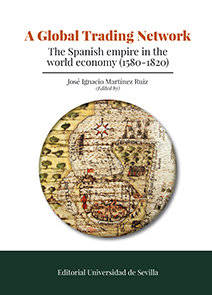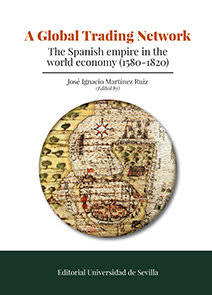
- Retrait gratuit dans votre magasin Club
- 7.000.000 titres dans notre catalogue
- Payer en toute sécurité
- Toujours un magasin près de chez vous
- Retrait gratuit dans votre magasin Club
- 7.000.0000 titres dans notre catalogue
- Payer en toute sécurité
- Toujours un magasin près de chez vous
A Global Trading Network
José Ignacio Martínez Ruiz, Nuala Zahedieh, Wim Klooster, Isabel Lobato Franco, José M Oliva Melgar
Livre relié | Anglais
21,95 €
+ 43 points
Description
The Hispanic Monarchy became, over the course of the sixteenth century, the first global empire in history. American silver and the Carrera de Indias undoubtedly played a key role in the workings of the Spanish empire. However, within the empire and at its limits or peripheries, there were other forms of trade where, along with the silver, other valuable products were exchanged. Far from the exclusivity established by the metropolis in the relations with its respective colonies, what actually existed was a global trading network within which money, precious metals, merchandise and flows of information circulated, legally at times and tolerated on other occasions and, always, with the mechanisms established to enforce the law proving insufficient to put an end to the transactions conducted outside the law. This was what happened in the case of trans- Pacific trade and in the exchanges with Peru and Mexico, but also in the transactions that took place between the British colonies and plantations in North America and the Caribbean and the Spanish colonies in Central and South America, the Iberian Peninsula itself and the Canary Islands. A similar situation occurred in the exchanges between Spain and the Muslim powers in North Africa, the enemies of the faith, exchanges that were prohibited, but which without a doubt continued to exist throughout the entire Modern Age. The set of studies compiled in this volume constitute, therefore, an important contribution to the study of the Spanish commercial system understood as a global trading network from 1580 to 1820.
Spécifications
Parties prenantes
- Auteur(s) :
- Editeur:
Contenu
- Nombre de pages :
- 338
- Langue:
- Anglais
Caractéristiques
- EAN:
- 9788447219797
- Date de parution :
- 16-11-18
- Format:
- Livre relié
- Dimensions :
- 170 mm x 240 mm
- Poids :
- 785 g

Les avis
Nous publions uniquement les avis qui respectent les conditions requises. Consultez nos conditions pour les avis.






